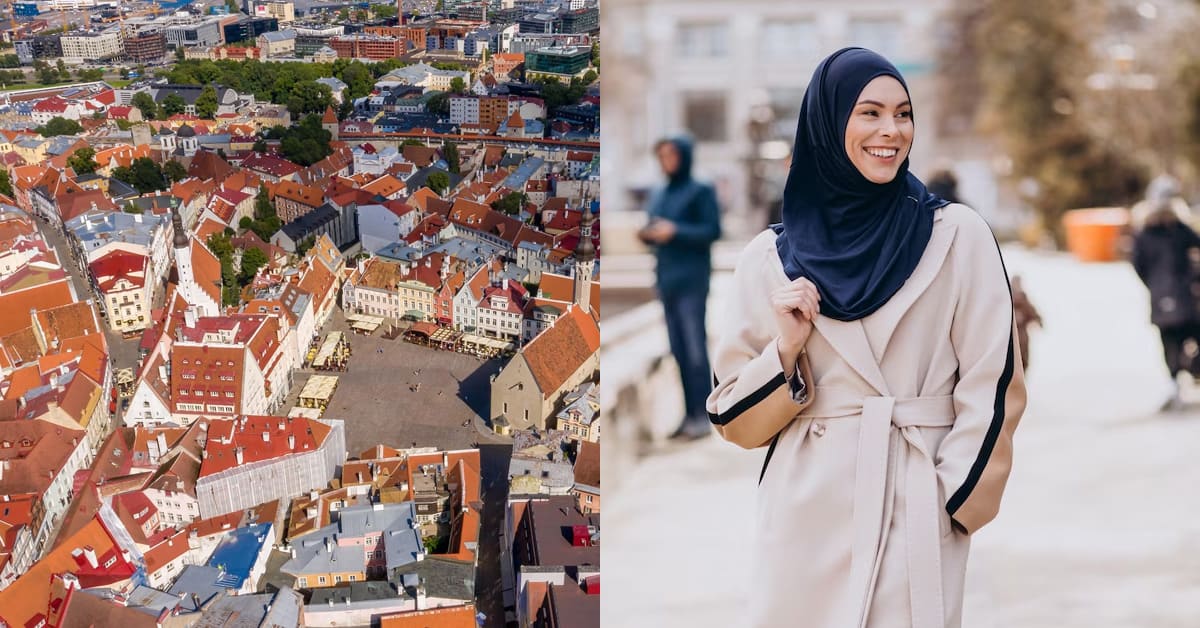Estonia, a small country located in Northern Europe, may not be the first destination that comes to mind when thinking about Muslim travel. However, Estonia has a rich history and culture that is worth exploring for Muslim travellers.
With a population of just over 1.3 million people, Estonia is known for its stunning natural beauty, medieval architecture, and vibrant cultural scene. While the country is predominantly Christian, there is a growing Muslim community in Estonia, and the country is becoming more welcoming to Muslim travellers.
Is Estonia Muslim-friendly?
Is Estonia Muslim friendly?
Estonia is generally a tolerant and open-minded country, but it has a small Muslim population, and Islamic culture and traditions may not be as well-known or understood as in other countries with larger Muslim communities. There are a few mosques and Islamic centers in Estonia, mainly in the capital city, Tallinn.
While Estonia is not specifically known for being Muslim-friendly, many Muslims have visited and lived in the country without significant issues. However, it is essential to be aware of local customs and be respectful of the local culture.
Does Estonia have halal food?
Yes, Estonia has halal food available in some restaurants and grocery stores. However, the availability of halal food may vary depending on the location and the type of food you are looking for. It is recommended to check with the restaurant or store beforehand to ensure that the food is halal.
Is Estonia safe for Muslim?
Yes, Estonia is generally safe for Muslims. The country is known for its religious tolerance and respect for diversity.
Muslims are free to practice their religion and there are several mosques and Islamic centers in the country. However, like any other country, it is important to be aware of your surroundings and take necessary precautions to ensure your safety.
Are there many Muslims in Estonia?
No, there are not many Muslims in Estonia. According to the 2020 statistics, Muslims make up less than 1% of the population in Estonia. The majority of the population in Estonia is Christian, with a significant number of people identifying as non-religious.
Is Estonia a good place to live in for Muslims?
Estonia is a secular country that respects religious freedom and tolerance. Muslims are a minority in Estonia, but there are mosques and Islamic centers in Tallinn and Tartu.
Halal food is also available in some supermarkets and restaurants. Overall, Estonia is considered a safe and peaceful country to live in, regardless of one’s religion.
As a Muslim, what should I prepare before travelling to Estonia?
Here are some general tips for travellers to Estonia:
- Check the weather forecast and pack appropriate clothing for the season.
- Make sure you have all necessary travel documents, including a valid passport and visa (if required).
- Research the local customs and culture to avoid any unintentional offense.
- Learn some basic Estonian phrases to help you communicate with locals.
- Familiarize yourself with the local currency and exchange rates.
- Check if there are any specific dietary requirements or restrictions that you need to consider.
- Find out about prayer facilities and halal food options in the area you will be staying.
- Respect the local laws and regulations, including dress codes and alcohol consumption.
- Consider purchasing travel insurance to cover any unexpected events.
- Have a plan for staying connected with family and friends back home, including access to the internet and phone services.
What is the largest mosque in Estonia?
The largest mosque in Estonia is the Tallinn Islamic Center, also known as the Estonian Islamic Center. It was opened in 2011 and is located in the capital city of Tallinn. The mosque can accommodate up to 1,200 worshippers and features a prayer hall, classrooms, a library, and a community center.
The mosque serves as a hub for the Muslim community in Estonia and hosts various events and activities throughout the year. It is also open to visitors who want to learn more about Islam and the Muslim culture.

